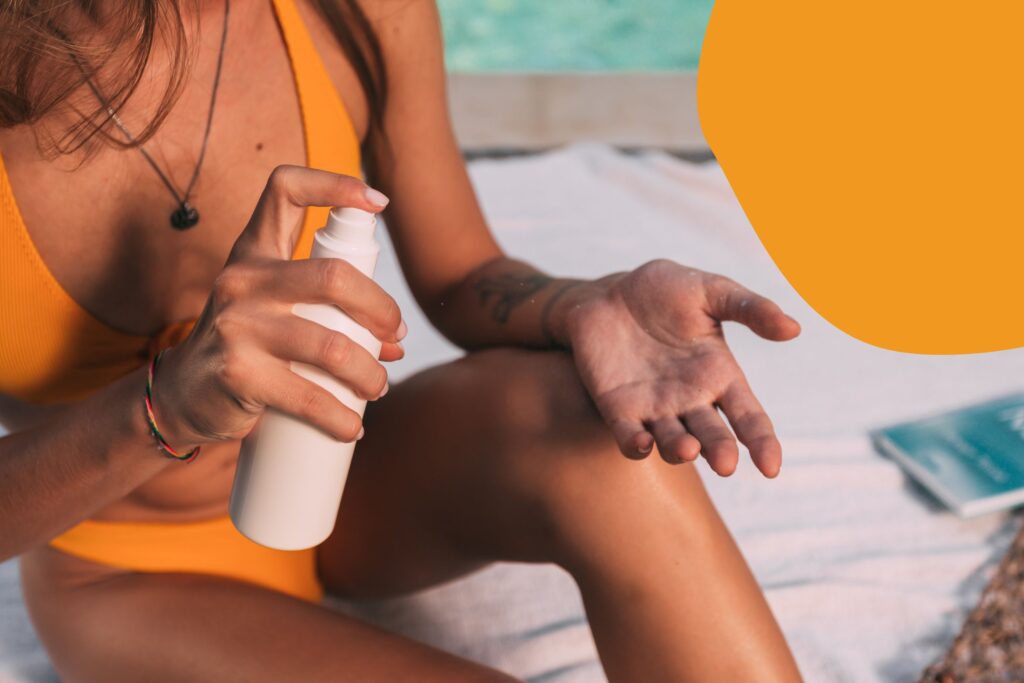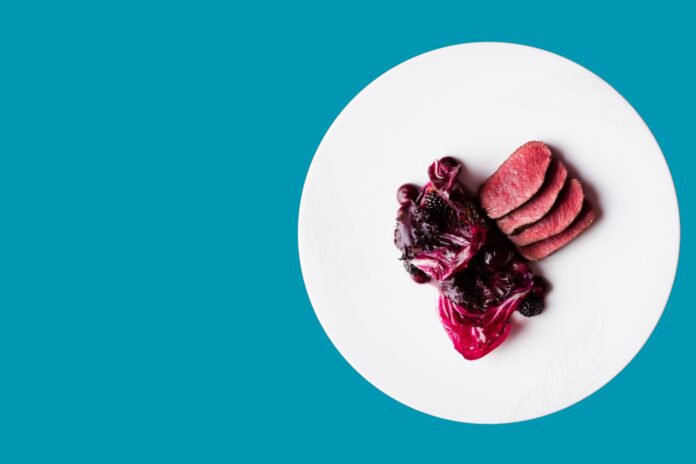Nigma Talib is a leading naturopathic doctor who certainly knows her stuff when it comes to skin problems. She has developed a worldwide following looking at the body as a whole and at all the contributing factors that might be affecting her patients, internally as well as externally. She shares with IDEAL her top anti aging tips:
Sunscreen
Your number 1 beauty weapon and defence: Sunscreen SPF between 30 and 50. The best protection comes from products that contain the mineral active micro zinc oxide at 5% or more concentration. It should also be made by a highly reputable lab because sun screen ingredients inactivate each other as they sit in the bottle and so you need a product that’s stood up to years of successful use under the highest scrutiny.
The zinc oxide (also called a physical or ‘inorganic’ sunscreen ingredient) is a physical block because it sits on the outer layers of your skin and bounces light off into the stratosphere, like tennis balls off a racket. The micro/nano zinc products will go on completely transparent if you keep rubbing the product into your skin until you can’t see it anymore. That’s when you’ve created a fine invisible protective layer of particles covering your skin and the UV bouncing is ready to begin!
Do not leave home without this daily sunscreen which goes on smooth and gives you a luminous glow and some coverage to even out your skin tone.
Makeup goes on top of sunscreen and it ideally should be a mineral makeup which gives you even more physical sun protection by this same bouncing mechanism. Then, if you’re really out in the sun, you need a great hat and to try to aim for staying in the shade as much as possible. (Of course, for extreme and sustained outdoor sun exposure, like a day at the beach, you just have to reapply sun screen every 2 hours.)

Skin Protector Foods
Certain foods can help prevent sun damage and nourish your skin: A diet rich in fresh, local fruits and vegetables is one that will keep you young and healthy. Studies show that those who consume a diet rich in fresh fruits and veggies suffer less oxidative damage (due to environmental toxins). Plus, both fruits and veggies contain plenty of antioxidants, which reverse the signs of aging.
In addition to your first and foremost weapon and defence for sunscreen, add some antioxidants to your diet to protect the inside and reflect oxidative protection on the outside. like blackberries and blueberries. Interestingly a study published by Tufts University showed that anthocyanins in blueberries, the pigments that give them their deep color, appear to combat oxidative stress.
Oxidative stress is one of the main causes of aging. Strawberries, tomatoes (rich in lycopene help improve your skin’s natural protection from ultraviolet radiation), and green tea (EGCG) rich in antioxidants may help protect cells on your skin from DNA damage caused by the UV A and UV B rays.
Read: 8 interesting, innovative ways to improve your complexion
Eat Good Fats
There are good fats and then there are bad fats. It just so happens that the fats you get from avocados, olive oil, nuts, coconut, and fatty fish (i.e., like salmon and tuna) are really good for you and your skin. Beneficial omega-3 and omega-6 fatty acids will infuse your skin, hair, and nails with the necessary vitamins and nutrients to keep them glowing.
Hyaluronic Acid
Though you probably associate the word “acid” with harsh and abrasive, hyaluronic acid is the exact opposite. It’s a humectant, meaning that it draws out water from the air and dermis (the skin that lies below the surface).s a major component of the connective tissue matrix in the dermis—the dense, inner layer of skin beneath the epidermis. The other two main components of skin are collagen and elastin, both of which are connective fibers.
Because hyaluronic acid retains 1,000 times its weight in water it attracts and maintains water within the extracellular space, hydrating your skin and increasing its volume and density. However, hyaluronic acid is also involved with the transport of essential nutrients to the skin’s viable cells. These amazing properties make it a popular ingredient in hydration serum for face health and rejuvenation, so all you need to do is find a serum and start using it each morning!
Vitamin C
According to a 2007 study published in the American Journal of Clinical Nutrition, middle-aged women who consumed more vitamin C appeared to have fewer wrinkles and less skin dryness. Vitamin C is a vital nutrient for the skin and helps form collagen and elastin (essential to keep the skin looking young) and applying liposomal vitamin c liquid directly to your skin is a fantastic way to easily absorb this nutrient.
Retinol
Retinol is the term used for the entire vitamin A molecule. Applied to skin, retinol is a beneficial cell-communicating ingredient and an antioxidant. Simply put, it helps skin cells create better, healthier skin cells and increases the amount of skin-support substances.
Retinol has been shown to increase the skins collagen production and glycosaminoglycan content, resulting in firmer skin with an improved texture and enhanced barrier function.
Although it is not the only ingredient to look for in an anti-aging product, it deserves strong consideration by anyone who wants to keep their skin in top shape through the years. In skin-care products, it is found in the form of retinol, retinyl palmitate, and retinylaldehyde. In prescription-only skin-care products, it is in the form of retinoic acid (also called tretinoin).
Ideal Tip: For someone who is starting off using Retinol use a mild strength of retinol that is gradually released into the skin to avoid irritation.
Avoid Skin Enemies
Sugar, smoking – Skip the Refined Sugar. A diet high in refined sugars—the sweeteners you consume in processed snacks, soda, and baked goods—will greatly reduce your energy levels and your longevity.
Instead, seek sweetness from natural sources, such as fresh fruits, honey, real maple syrup in moderation, and use other spices (i.e., cinnamon). Sugar in your diet causes “glycation”, in which the sugar in your bloodstream attaches to proteins that form harmful new molecules called advanced glycation end products (AGEs).
The cumulative “sugar eating” sprees can increase the development of the AGEs that damage surrounding collagen and elastin which are needed to keep your skin firm and elastic.
Exercise
Exercise is one of the best to increases circulation that improves the blood flow to your face, nourishing your cells with oxygen. In addition, exercise helps you balance your stress levels that can affect a potent ageing accelerator cortisol to be more balanced.
We also know from the latest research that people who exercise regularly have longer telomeres. Telomeres are cellular biomarkers that shorten as we age, so the longer the telomeres, the more protection and youth offered to our DNA preventing premature ageing by the adrenal glands.
Read: How to create an exercise routine from home
Sleep
Get your Beauty Sleep is an understatement…
If you are not sleeping at least 7 -8 hours of sleep per night, this can cause imbalanced cortisol levels, a hormone secreted by your “adrenal glands” which can cause inflammation in your body thereby accelerating your ageing. In addition, not having enough sleep can age your skin by preventing night time repair processes and also suppress your immune system.
Stay Hydrated
One easy way to remain youthful is to sip from nature’s elixir, and by that I mean drink plenty of water. Simple H20 will prevent dry skin, wrinkles, and ensure your hair, nails, and skin remain soft and supple, in addition to keeping your organs and digestive system running efficiently. Plus, those who sip water or herbal teas regularly flush their bodies of stressful, age-causing toxins.
Exfoliation
Exfoliation helps prevent excessive build-up of dead skin cells and hormonally driven moisture loss. Exfoliating at least one time per week revitalises the epidermis of the skin and allows for antioxidant serums to penetrate more effectively.





